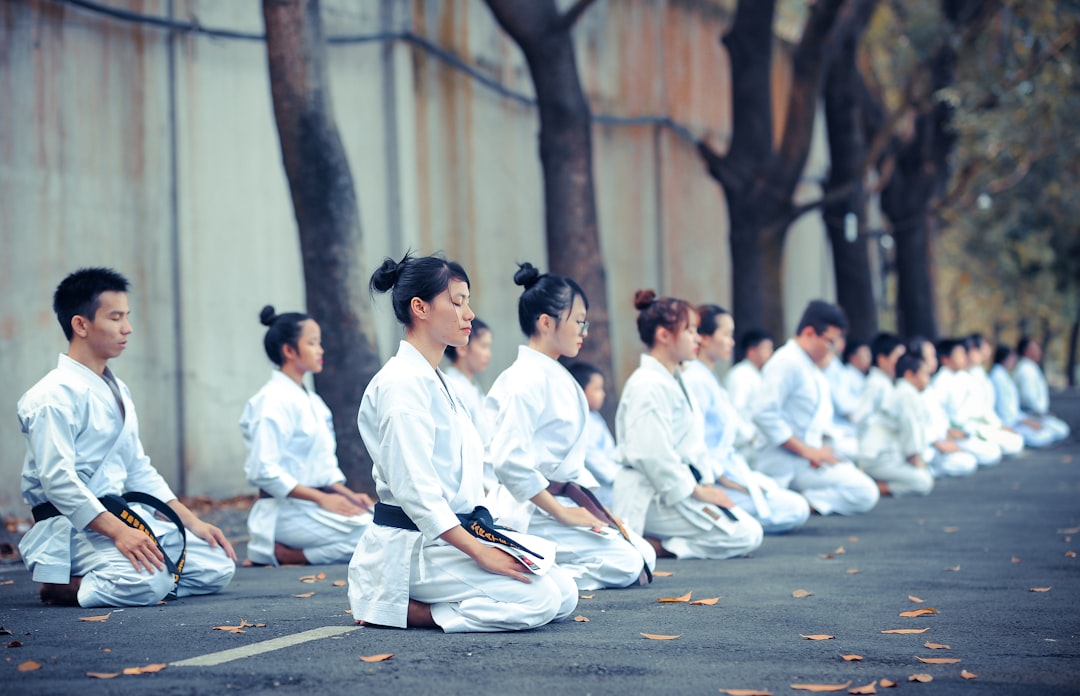Are All Musicians Narcissists?
I've been playing the piano for a long time, and I have written many songs. I love music and am passionate about it, but that hasn't stopped me from being accused of being a narcissist from time to time.

Not All Musicians are Narcissists
It's important to remember that not all musicians are narcissists. In fact, most musicians probably aren't. If you're entering the world of music as a performer, you have to be dedicated and willing to spend hours practicing your instrument or singing voice. You'll also need to be able to perform at night or on weekends for long periods of time—all things that could take their toll on the health of any person's self-esteem.
However, there are some pretty specific traits that make up this particular type of narcissism: grandiosity; a heightened sense of self-importance; preoccupation with fantasies about success and power; exhibitionism; envy of others; lack of empathy; exploitative behavior towards others and feeling entitled to special treatment by virtue of being more talented than others (McConaghy & Toseland, 2011).
Being a Professional Musician Takes Dedication
If you think becoming a professional musician is easy, think again. There's so much more to it than just being able to play your instrument. It takes dedication, hard work and sacrifice to be successful in this field.

You need to be willing to practice every day for hours on end if you want to get better at playing your instrument or singing while playing an instrument (which is harder than it sounds). There will be days when you feel like throwing in the towel, but if you can keep pushing yourself forward through those times then success will follow closely behind.
In addition to practicing all day long, musicians also have to make sacrifices in their personal lives because they spend so much time practicing that they don't always have time for themselves or family members who might want their attention as well as other things like hobbies or sports teams they might otherwise participate in if they weren't pursuing music professionally.
Musicians Have to Spend Time Practicing
You have to spend time practicing if you want to be successful. If you are interested in taking music lessons check out our music lessons in Ann Arbor. Practice is the key to success, and it can make you a better musician. Here are some of the benefits of practicing:

- It can help your weaknesses by allowing you to work on them.
- You can improve your skills so they're stronger than ever before!
- Practice can build confidence in yourself as well as in your skill level as a whole.
- You'll learn new things that will help make sure you don't get bored with playing music over time (which could lead people away from listening).
Discipline is Key to Learning Any Skill or Art Form
Discipline is a skill that can be learned, and it's one of the most important skills to have as an artist. If you're not disciplined, you won't have the drive to push through the hard parts of learning any skill or art form. And I don't just mean physical discipline (although that's important too). I mean mental discipline—the ability to do something you don't want to do in order to achieve a goal larger than yourself.

You may think this sounds like nothing more than common sense, but it's actually harder than you think! At first glance, it might seem like there's no reason why practicing our least favorite aspects of music should be so difficult. After all:
- Until someone pays me for my music or gives me career advice on how best to promote myself (hint: social media), none of this matters anyway;
- If I'm struggling with something technical while playing guitar or singing, then why not just practice scales instead?
It is important to find an activity that you enjoy, because then it doesn't seem like work
It is important to find an activity that you enjoy, because then it doesn't seem like work. If you are not enjoying the activity, the effort will feel like a burden and you won't be able to sustain it long term. Of course, it's normal to want to try new things and experiment with your interests before settling on one thing—but once you've found something that really grabs your attention and makes you feel good while doing it, then there's no reason not to have fun every time!
If an activity makes me happy when I'm doing it, then I am more likely to keep at it over time. By continuing my efforts at this task for long enough (and thus improving), eventually I may even become good enough at this skill so that people notice! This kind of feedback means a lot for those interested in pursuing careers as artists or performers; when someone says "wow" after hearing me sing or play something well on their instrument, I feel proud of myself too!
Dedication and Determination are Crucial in Any Creative Pursuit
If you're a musician, then you know it takes dedication and determination to get where you are. You've spent countless hours practicing your craft and honing your talents as an artist. But because of this effort, or perhaps in spite of it, some people might be quick to label musicians as narcissists.
The truth is that while narcissism may seem like a prerequisite for musicianship (and many other creative fields), it's not necessarily the case—and definitely not an excuse for bad behavior by any means! In fact, if anything can help overcome narcissistic tendencies it's probably the sheer dedication required by being a musician. This kind of perseverance builds character and helps us overcome whatever challenges come our way along the way.
The Ability to Make Use of Feedback Goes Along with Dedication
We are all aware that feedback is essential for improvement. Most of us have a teacher or mentor who provides us with constructive criticism, but even the best teachers can’t always tell you what you need to hear when it comes to self-criticism. When we are stuck in a rut and don’t know how to move forward, it can help tremendously if we look at our work from different perspectives. We may be so close to our own work that we fail to see its potential or its flaws clearly enough, but another person might see them as clearly because they aren’t as emotionally invested in the outcome.

This type of self-criticism isn’t easy because it requires looking at yourself objectively and identifying areas where improvement can occur. In order to do this effectively, though, you need some distance between yourself and your artistry—the ability to take an outsider's view without getting too personal about things like “this part sucks!”
Learning a musical instrument will help you become more creative
It's not uncommon to hear people say that music is an art, but what do they mean by that? The word "art" has a fairly broad definition. It can be used to describe any form of self-expression through visual or verbal media (i.e., writing, painting, drawing, photography and anything else you can imagine). However, when we talk about music as an art form specifically (as opposed to literature or film), we're referring to an audio medium that uses sounds—and sometimes silence—to evoke emotions in listeners.
Music also helps us become more creative because it teaches us how our surroundings affect our moods and emotions. When we listen to sad songs for example, our minds tend unconsciously associate those feelings with similar environments; therefore making them feel the same way again when they go back there later on in life!
In conclusion, there are a lot of misconceptions about musicians and narcissism. While some artists may have narcissistic tendencies, this does not mean that all of them do. In fact, it takes a lot of dedication and determination to be a professional musician. If you want to learn how to play an instrument or sing better then start now!



